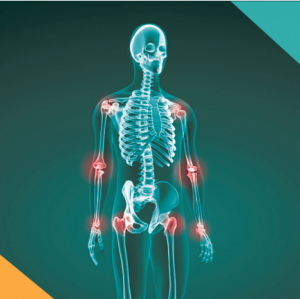 |
Randall Curtis, 66, survived life-threatening bleeds in the years before scientists discovered how to make clotting factor for home infusion. A doctor once told his parents, “You know, these kids don’t really live past 13” — yet Curtis overcame the odds and went on to have a 35-year career as an advocate for research on bleeding disorder-related pain. At the same time, Curtis has waged a personal battle against chronic, painful joint bleeding, known as hemophilic arthropathy. “Hemophilic arthropathy is one of the most common complications in people with bleeding disorders; an estimated 50% of people with hemophilia develop a severe form of the condition,” says Curtis, who chairs Hemophilia Utilization Group Studies and is a member of the National Hemophilia Foundation’s Medical and Scientific Advisory Council Pain Group. “The resulting reduced range of motion and function combined with chronic joint pain significantly impacts quality of life and is correlated with depression and anxiety.” |
Unmet Need
|
There is no cure for hemophilic arthropathy, no way to reverse joint damage once it has occurred, and no pain treatment specifically approved by FDA for hemophilic arthropathy. People with hemophilic arthropathy have limited treatment options to ease their pain, and many are left to choose between a life with pain or resorting to opioids to manage their symptoms. While opioids can be effective, they also come with a risk of addiction and even overdose. Opioids have a real and important place in helping patients with hemophilia manage their pain, but alternatives are needed. |
|
Relief May Be on The Horizon
The good news is that a new clinical trial is now recruiting patients to evaluate a potential alternative. Tremeau Pharmaceuticals, founded with the goal of developing and delivering non-opioid pain therapies to people with significant unmet needs, is evaluating TRM-201 (rofecoxib) as a new investigational pain management option for people with hemophilic arthropathy.
Rofecoxib is an NSAID – a non-steroidal anti-inflammatory drug – that selectively inhibits COX-2, an enzyme responsible for inflammation and pain.
You may have heard of rofecoxib when it was previously marketed as VIOXX – a medication that was voluntarily withdrawn from the market in 2004 due to concerns about cardiovascular safety. Since that time, industry-independent studies suggest that cardiovascular risk is similar for all NSAIDS (i.e. rofecoxib, ibuprofen, celecoxib, etc.), and is related to how long and at what dose you take the NSAID.
Importantly for people with bleeding disorders, studies suggest that rofecoxib has no effect on the ability of blood to clot relative to placebo and was the only COX-2 selective NSAID ever approved in the U.S. to demonstrate a reduced risk of gastrointestinal bleeding versus a traditional NSAID in a controlled trial.
Tremeau’s clinical trial, known as RESET-HA, is the first Phase III study focused on hemophilic arthropathy. If approved, TRM-201 could be the first pain medication specifically indicated for this population.
To learn more, please visit the RESET-HA study website or ClinicalTrials.gov.


